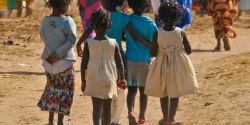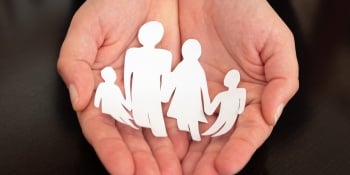Published: 25.08.2022

· United Nation Agency – UNFPA – has awarded ten enterprises whose projects should ‘change the lives of women and girls’.
· The challenge was theoretically focused on the development of innovative solutions as the key to accelerating progress for women and girls worldwide.
· Most of the winners, however, are involved in promoting gender issues and disseminating information on contraception and reproductive rights among adolescent girls and young women in developing countries.
· The award-winning projects will be funded by the United Nations and their efforts will be further developed and implemented on a long-term basis in collaboration with the World Intellectual Property Organisation (WIPO), the International Telecommunication Union (ITU) and the International Trade Centre.
The United Nation Population Agency on Sexual and Reproductive Rights – UNFPA – has awarded ten women-helmed organizations hailing from five different regions globally engaged in providing innovative solutions that should advance the empowerment of women and girls worldwide. The challenge has been created in order to counteract what the UNFPA has called ‘a reverse of twenty years of progress for women and girls’ due to Covid-19 health emergency and aims to equalize opportunities for the latter and ensure rights and choices for all through innovation. The project received, moreover, further funding from the Governments of Luxembourg, Finland, and Denmark. In this frame, the Executive Director of UNFPA, stated that "To disrupt inequality and realize the sustainable development goals, we need to remove the barriers standing between women and girls and their rights and choices”.
In terms of the challenge, the emphasis of the award was on solutions that promote the empowerment of women and girls, focusing on ending the 'unmet need for family planning, preventable maternal deaths, gender-based violence and harmful practices'. The ten winning companies will receive a $60,000 grant from UNFPA and sign a nine-month contract during which they will develop and begin implementing their plans to scale. Awardees will also receive technical assistance in areas of interest, including intellectual property (IP) management and business modelling. In addition, they will receive training on business competitiveness, capacity building on gender mainstreaming in business practices and capacity building on design thinking as a tool to develop innovative solutions.
The winners of the challenge, in this regard, have been selected among 300 submissions and most of them are involved in developing gender-based activities or spreading ‘reproductive rights’ in developing countries. Among them all, in particular, stands out Urukundo Initiative which is the first ever licensed low-tech educational game in Rwanda that ‘disseminates information on sexual and reproductive health and rights’; ToguMogu a wellbeing platform from Bangladesh that provides ‘access to family planning, reproductive health information, and services for young women and new mothers’; TirandoX which provides adolescent girls from Colombia with ‘sexual and reproductive health information and services, helping to end the cycle of poverty generated by many teenage pregnancies’ and GerHub that reaches women and girls in ‘remote areas of Mongolia with information and sexual and reproductive health services through mobile clinics and telemedicine’.
Once again, in essence, through this award, we witness the attempt to colonise and further promote a deadly culture precisely in developing countries, where the increase in births is seen solely as the result of a lack of education on contraception. Synonymous with emancipation is therefore not the dissemination of a culture of affectivity that makes known the integral human dimension of sexuality, but only the provision of information to young women on the mechanisms of contraception and abortion as a means of emancipation. In this sense, high pregnancy rates are understood as a barrier to be removed to prevent poverty and emancipation in low-income countries.

29.05.2025
• Proceedings in the case of the German Mori family have concluded at the District Court in Gdańsk.

23.05.2025
• The Ordo Iuris Institute co-organized the 2nd Pan-African Conference on Family Values in Nairobi and was invited to take part in the Kenyan government’s celebration of International Day of Families.

19.05.2025
• The 78th World Health Assembly, the deliberative body of the World Health Organization, begins today in Geneva.

14.05.2025
• In Nairobi, the 2nd Pan-African Conference on Family Values is taking place with the participation of representatives from Ordo Iuris.